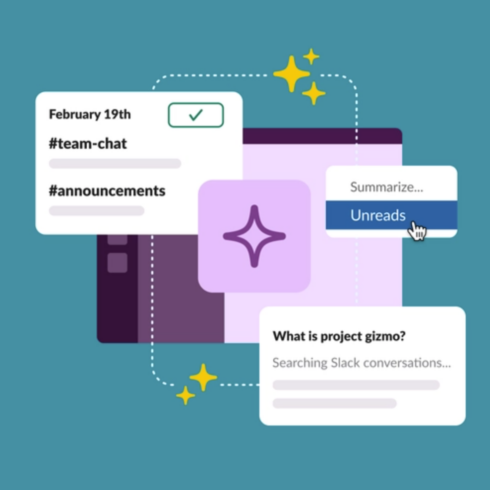
Slack has announced that Slack AI is starting to officially roll out to customers. First announced in September, Slack AI incorporates generative AI capabilities into the communication platform.
The initial set of capabilities include personalized responses to search queries, channel recaps for key highlights of the activity within a channel, and thread summaries to enable you to catch up on long conversations quickly.
The personalized search can be used to get up to speed on a new project, such as learning the project’s goal and the key stakeholders involved. The responses also display the citation for the information gathered.
“This means no wild goose chases using roundabout search terms; if you don’t know exactly what you’re looking for, AI will make smart suggestions. Just ask a question conversationally, like you would to that friendly colleague who knows everything about your organization,” Slack wrote in a blog post.
Other use cases recommended by the company include learning about company policies, finding internal subject-matter experts, getting insights about past decisions from historical context, and defining unfamiliar acronyms.
Channel recaps and thread summaries can provide the key highlights and themes of a conversation. It can be useful for catching up after a vacation, getting up to speed on a new project, staying informed on customers in sales account channels, outlining a root cause analysis, and extracting themes from design feedback channels.
According to Slack, customer data is not being shared with LLM providers or used to train LLMs. The AI runs on Slack’s infrastructure, which allows it to keep the same security practices and compliance standards as the application.
“These new AI capabilities empower our customers to access the collective knowledge within Slack so they can work smarter, move faster, and spend their time on things that spark real innovation and growth. In the era of generative AI, Slack is the trusted, conversational platform that connects every part of a business to supercharge team productivity,” said Denise Dresser, CEO of Slack.






